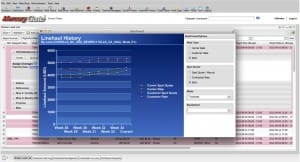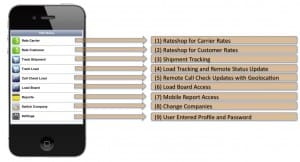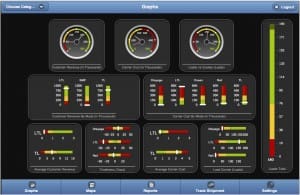I talked to Eddie Rei, the President of Triumph Express Service Canada, about the freight forwarding industry and how it is changing. Eddie describes a freight forwarder as a “travel agent for freight.” Freight forwarders buy space wholesale from steamship lines and resell that space to shippers. They make their living based on the buy/sell spread.
In Canada, where this industry is not as heavily regulated as in the US, they negotiate with carriers every year in May and buy the space they think they can sell over the course of the next year. While the capacity commitment is firm, prices charged on a lane can change based supply/demand forces in the marketplace. “Some years it is a demand game, shippers are struggling for space. Some years, like this year, it is a supply game” where shippers can negotiate hard on price.
Triumph was started by Eddie’s father, who had gained experience in the industry by working for Kuehne + Nagel, back in the early 80s. When Eddie’s father started the business the China trade was just getting started. There were some fat years for freight forwarders as trade grew, but this is a non-asset business with low barriers to entry. “We compete against small – 2-3 man shows – and the big guys – like the multinational forwarders.”
When there is an abundance of vessel capacity like this year, “The business is hyper competitive.” Not that long ago, shippers would negotiate rates with their freight forwarders a few times a year. Now there are weekly negotiations. “If a customer can get a better rate from a competitor, we need to go back to the steamship line and ask for a rate reduction.” In this type of market we are constantly reviewing buy rates with our core carriers.
The other thing that has made the business tougher are steamship line coalitions, like the G6 Alliance that includes 6 leading carriers. In these agreements capacity booked on a lane can be filled by any carrier in the alliance depending on the ship rotation. These types of alliances have made steamship services more homogenous and made it more difficult for forwarders to leverage their domain knowledge and provide niche offerings. This too increases price competition.
Triumph has adapted to this pressure by also offering customs clearance and warehousing services. Over the years they have grown to a 70 person firm with four offices and two warehouses across Canada and revenues of greater than $75 million Canadian. But the bulk of their business is still forwarding, and the firm has made recent moves to become more competitive by providing new benefits to their customers.
Triumph implemented Private Label Sailing Schedules from CargoSmart. This is a SaaS, network based solution that aggregates that incorporates the latest sailing schedule data from multiple sources. At first, when the solution was presented to him, Eddie thought “why do I need this solution? I can go to any line and look at their schedule.” But as he thought about it, he realized the solution would offer time savings and better vessel visibility for his staff.
And as he thought more about the solution, he realized there were other advantages. “Not a lot of forwarders are aggregating data. By opening this data up to our clients, they can look at the best times for a shipment.” It eliminates one potential customer issue, the suspicion that the freight forwarder is picking the shipment that best suits their internal needs rather than their customers’ needs.
The truth, as anyone who deals with ocean freight on a regular basis realizes, is that sailing schedules change all the time. For example, CargoSmart data shows that in May of 2015 there were 5,689,979 schedule changes, 608,112 service changes (where for example, a ship line changes the itinerary by adding a port or switches the order in which particular ports will be served), and 234,414 schedule delays.
The sailing schedules are more accurate. CargoSmart’s Schedule Delay Alert leverages consolidated sailing schedule data from multiple sources and uses tools to help identify schedule changes that may impact shipments. A daily report notifies recipients of the major schedule changes of vessels that have an estimated time of departure or estimated time of arrival change of more than 24 hours.
Eddie has found the CargoSmart data to be more accurate. “More accurate data means better service.”
Mr. Rei gave the example of customers that serve large retailers that charge penalties if shipments are late. If you can tell the retailer it will be late ten days before it is scheduled to hit their DC dock, that penalty may be waived or reduced. “At the very least, the earlier you tell them the better.”
Some retail customers are giving the tool to their buyers. “When the supplier tells them ‘Your goods will be ready on this date,’ the buyer can tell the forwarder, ‘I want them on this ship.’”
In conclusion, Eddie calls this solution “A long awaited window for shippers to view global sailing schedules to make informed decisions that will affect their supply chain. This is the future of the industry.”




















